All Yuma Addiction Treatment Centers
-
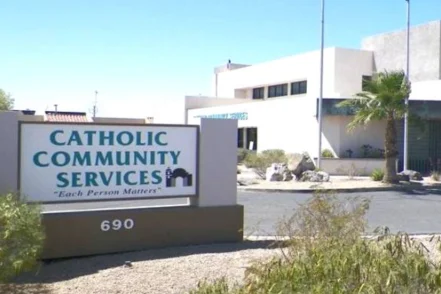
Catholic Community Services Yuma
690 East 32nd Street
Yuma, Arizona 85365Treatment Programs
- Alcohol Rehab
- Dual Diagnosis
- Opioid Addiction
- +4
Insurance
- Self-pay options
-
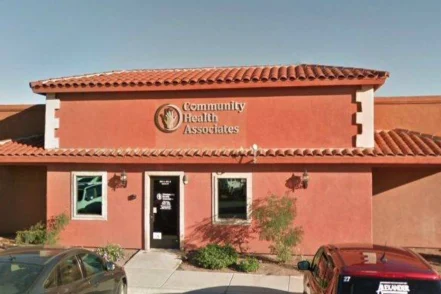
Community Intervention Associates
2851 South Avenue B, Suite 27
Yuma, Arizona 85364Treatment Programs
- Alcohol Rehab
- Dual Diagnosis
- Opioid Addiction
- +5
Insurance
- Medicaid
- Private insurance
- +5
-
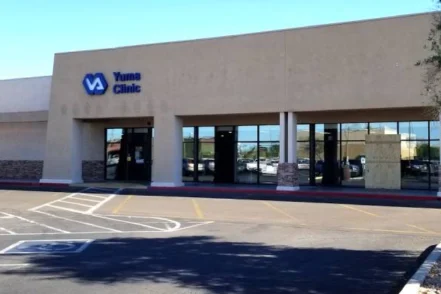
Southern Arizona VA Health Care System Yuma CBOC
3111 S. 4Th Avenue
Yuma, Arizona 85364Treatment Programs
- Dual Diagnosis
- Adult Program
- Senior Rehab
- +5
Insurance
- Self-pay options
- Financial aid
- +2
-
New Hope of Arizona Yuma
200 S 3Rd Ave, Suite 206
Yuma, Arizona 85364Treatment Programs
- Alcohol Rehab
- Dual Diagnosis
- Opioid Addiction
- +4
Insurance
- Medicaid
- Self-pay options
- +4
-
Providence Services Corporation
3818 West 16Th Street
Yuma, Arizona 85364Treatment Programs
- Dual Diagnosis
- Young Adult Rehab
- Adult Program
- +3
Insurance
- Private insurance
- Self-pay options
- +3
-
Quechan Indian Tribe Alcohol Drug Abuse Prevention
1888 San Pasqual School Road
Winterhaven, California 92283Treatment Programs
- Alcohol Rehab
- Opioid Addiction
- Drug Rehab
- +3
Insurance
- Financing available
- Military insurance
- +3
-
Arizona Counseling and Treatment Services
679 North 1St Avenue
San Luis, Arizona 85349Treatment Programs
- Dual Diagnosis
- Young Adult Rehab
- Adult Program
- +3
Insurance
- Medicaid
- Private insurance
- +3
-
Turning Point Mens Home
450 Cedar Avenue
Holtville, California 92250Treatment Programs
- Drug Rehab
-
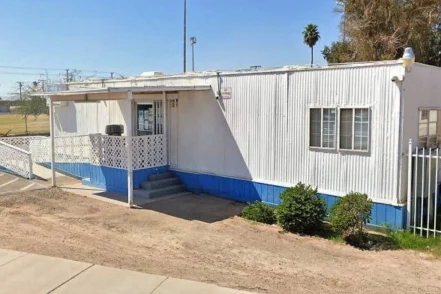
Imperial Valley Medical Clinic
535 Cesar Chavez Boulevard
Calexico, California 92231Treatment Programs
- Alcohol Rehab
- Opioid Addiction
- Drug Rehab
- +3
Insurance
- Medicaid
- Private insurance
- +5
-
Imperial County Behavioral Health Services Adult Outpatient
2695 South 4th Street
El Centro, California 92243Treatment Programs
- Alcohol Rehab
- Dual Diagnosis
- Opioid Addiction
- +4
Insurance
- Medicaid
- Private insurance
- +3
-
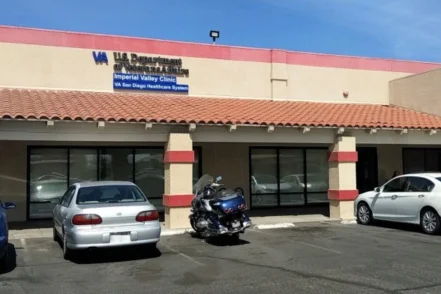
VA San Diego Healthcare System Imperial Valley CBOC
1115 South 4th Street
El Centro, California 92243Treatment Programs
- Dual Diagnosis
- Adult Program
- Senior Rehab
- +5
Insurance
- Financial aid
- Military insurance
- +5
-
Sure Helpline Crisis Center
395 Broadway Street, Suite 2
El Centro, California 92243Treatment Programs
- Dual Diagnosis
-
The Salvation Army El Centro Corps Community Center
375 North 5th Street
El Centro, California 92243Treatment Programs
- Alcohol Rehab
- Drug Rehab
- Dual Diagnosis
- +5
-
Sober Roads
584 West Main Street, Suite C
El Centro, California 92243Treatment Programs
- Alcohol Rehab
- Opioid Addiction
- Drug Rehab
- +4
Insurance
- Self-pay options
-
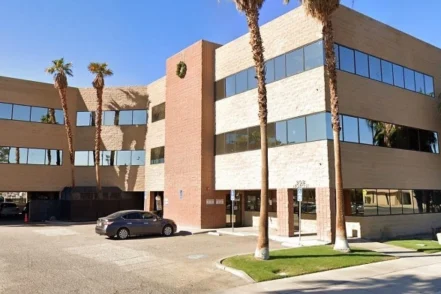
Imperial County Behavioral Health Services El Centro
202 North 8th Street
El Centro, California 92243Treatment Programs
- Alcohol Rehab
- Drug Rehab
- Dual Diagnosis
- +6
Insurance
- Medicaid
- Medicare
- +4
Other Nearby Cities
Top Drug Rehab Centers in Arizona
-
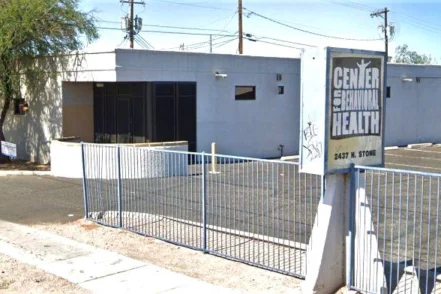 Arizona
ArizonaCenter for Behavioral Health Tucson
2437 North Stone Avenue Tucson, Arizona 85705
Treatment Programs
- Alcohol Rehab
- Dual Diagnosis
- Opioid Addiction
- +4
-
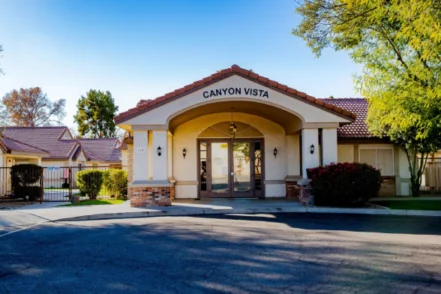 Arizona
ArizonaCanyon Vista Recovery Center
860 North Center Street Mesa, Arizona 85201
Treatment Programs
- Alcohol Rehab
- Dual Diagnosis
- Opioid Addiction
- +6
-
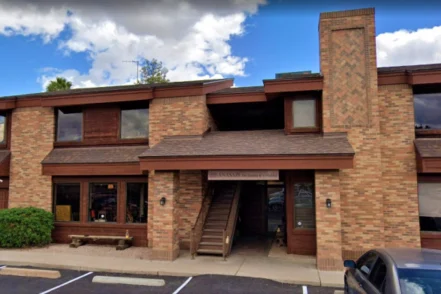 Arizona
ArizonaAnasazi Foundation
1424 South Stapley Drive Mesa, Arizona 85204
Treatment Programs
- Alcohol Rehab
- Dual Diagnosis
- Opioid Addiction
- +4
-
 Arizona
ArizonaDesert Cove Recovery N Scottsdale Rd
6613 N Scottsdale Rd, Suite 200 Scottsdale, Arizona 85250
Treatment Programs
- Alcohol Rehab
- Dual Diagnosis
- Opioid Addiction
- +4
-
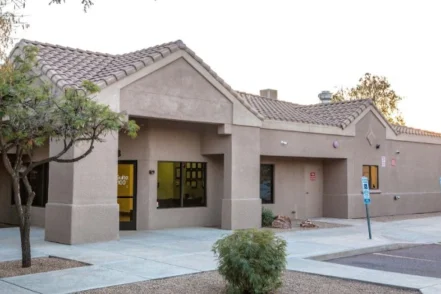 Arizona
ArizonaBuena Vista Recovery Cave Creek
29858 North Tatum Boulevard Cave Creek, Arizona 85331
Treatment Programs
- Drug Rehab
- +-2
-
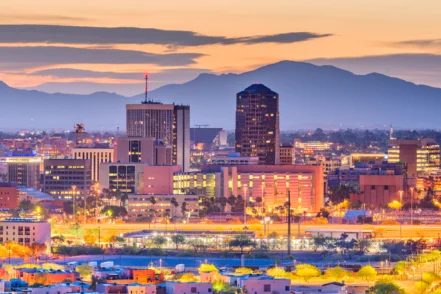 Arizona
ArizonaBurning Tree West
700 N. 7Th Ave. Tucson, Arizona 85705
Treatment Programs
- Alcohol Rehab
- Dual Diagnosis
- Opioid Addiction
- +4
-
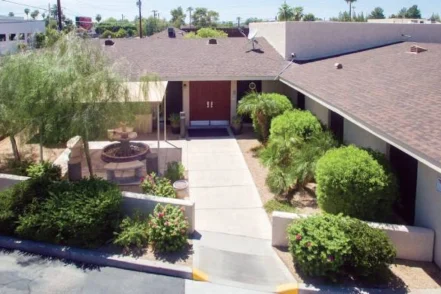 Arizona
ArizonaCalvary Healing Center
720 East Montebello Avenue Phoenix, Arizona 85014
Treatment Programs
- Alcohol Rehab
- Dual Diagnosis
- Opioid Addiction
- +5
-
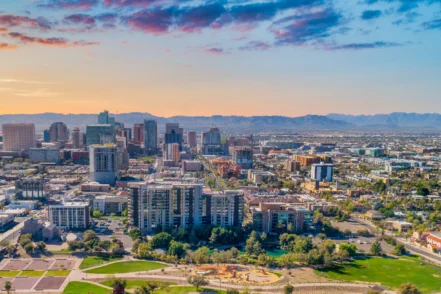 Arizona
ArizonaIntensive Treatment Systems Main Clinic
651 West Coolidge Street Phoenix, Arizona 85013
Treatment Programs
- Alcohol Rehab
- Opioid Addiction
- Drug Rehab
- +4
-
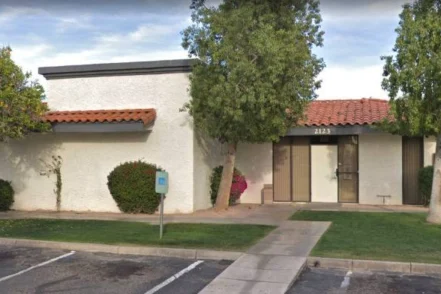 Arizona
ArizonaCenter for Behavioral Health Tempe
2123 East Southern Avenue Tempe, Arizona 85282
Treatment Programs
- Alcohol Rehab
- Dual Diagnosis
- Opioid Addiction
- +4
-
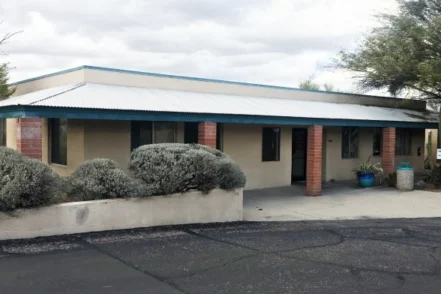 Arizona
ArizonaCottonwood Tucson
4110 West Sweetwater Drive, Building 1400 Tucson, Arizona 85745
Treatment Programs
- Alcohol Rehab
- Dual Diagnosis
- Opioid Addiction
- +7
